Cirque Mechanics: Ferst Center hosts family-friendly circus show
Friday, February 25, 2011
from: www.nique.net, Georgia Tech
If you have ever wondered what Cirque Du Soleil would be like with a conventional narrative about rowdy cowboys, Cirque Mechanics’ Boomtown is the antidote to your curiosity. The program informs audiences that the troupe was founded to bring family-friendly entertainment to circus audiences. In this case “family friendly” seems to be a euphemism for flashy and simple-minded. Admittedly, Boomtown offers some very impressive acrobatics and balancing acts, but it is hampered by weak group choreography, dumb physical comedy and a broadly-pantomimed narrative about two feuding saloon owners.
The show is determined not to take itself seriously though, and in many respects, it is purposefully unrefined. Set changes are not only not hidden; they are the focal point of the show. Operating stage mechanics like pulleys and cranes become a performance art unto itself. The corps of cowboys performs wall-runs up over-turned benches and takes turns launching one another off of two tilting telegraph poles connected by a pulley. The goofy mining prospector from the prologue surprises audiences with an impressive balancing act on jugs of moonshine.
Some of these tricks will seem familiar to those who have seen a Cirque du Soleil performance, and many of the acts go on for a few variations too long. In the case of the boozy balancing act, we watch the prospector work his way up from the flat of the crate, to the long side of the crate, to the short side of the crate, to many crates stacked on top of each other, to one crate sliding over many different bottles. They are all impressive feats of balance, but the arbitrary build-up will wear audiences down as opposed to psyching them up.
The performer’s technique is also self-consciously rough, deliberately blurring the lines between ballet, acrobatics, vaudeville and in one act, striptease. In many respects, this technical crudeness fits the rough-and-tumble sensibilities of the show’s Wild West setting. But on Friday night, the show’s technical roughness exceeded its metaphor in an ugly way. During the mining-cart trampoline scene near the beginning of the second act, one of the performers missed the foam landing pad and half-staggered, half-fell off stage. He did not emerge again even for the final curtain call. The remaining performers did an admirable job of covering his absence, though a couple of botched musical cues and an abrupt ending suggest that a routine or two had to be trimmed.
The troupe’s weakest link is the character actress who portrays the town’s lively kleptomaniac. Lacking the high flying skills or muscular discipline of her colleagues, she flits across the stage, squeaking and snatching things and cements both of the show’s weakest performances. The first is a tedious act of ‘magic’ where she appears to extract objects from her skirt and bodice, but no actual sleight-of-hand is required since the entire sequence takes place behind a silhouette screen. Her second contribution is an excruciating pantomime where she walks an audience member through an invisible jail cell routine. Both acts are accompanied by obnoxious sound effects that a Saturday morning cartoon would blush to use.
Compared to the surreal, bizarre, and occasionally disturbing dreamscapes of that other, more famous Cirque, one cannot help but wonder what Boomtown might have been if it ditched its dumbed-down comedy routines and simple-minded story-telling to focus squarely on elaborate mechanical apparatus and rope-assisted acrobatics. Families hoping for a fun, unpretentious take on modern circuses’ elaborate acrobatics will find something to like in Boomtown, but most other audiences can afford to give it a pass.
The show is determined not to take itself seriously though, and in many respects, it is purposefully unrefined. Set changes are not only not hidden; they are the focal point of the show. Operating stage mechanics like pulleys and cranes become a performance art unto itself. The corps of cowboys performs wall-runs up over-turned benches and takes turns launching one another off of two tilting telegraph poles connected by a pulley. The goofy mining prospector from the prologue surprises audiences with an impressive balancing act on jugs of moonshine.
Some of these tricks will seem familiar to those who have seen a Cirque du Soleil performance, and many of the acts go on for a few variations too long. In the case of the boozy balancing act, we watch the prospector work his way up from the flat of the crate, to the long side of the crate, to the short side of the crate, to many crates stacked on top of each other, to one crate sliding over many different bottles. They are all impressive feats of balance, but the arbitrary build-up will wear audiences down as opposed to psyching them up.
The performer’s technique is also self-consciously rough, deliberately blurring the lines between ballet, acrobatics, vaudeville and in one act, striptease. In many respects, this technical crudeness fits the rough-and-tumble sensibilities of the show’s Wild West setting. But on Friday night, the show’s technical roughness exceeded its metaphor in an ugly way. During the mining-cart trampoline scene near the beginning of the second act, one of the performers missed the foam landing pad and half-staggered, half-fell off stage. He did not emerge again even for the final curtain call. The remaining performers did an admirable job of covering his absence, though a couple of botched musical cues and an abrupt ending suggest that a routine or two had to be trimmed.
The troupe’s weakest link is the character actress who portrays the town’s lively kleptomaniac. Lacking the high flying skills or muscular discipline of her colleagues, she flits across the stage, squeaking and snatching things and cements both of the show’s weakest performances. The first is a tedious act of ‘magic’ where she appears to extract objects from her skirt and bodice, but no actual sleight-of-hand is required since the entire sequence takes place behind a silhouette screen. Her second contribution is an excruciating pantomime where she walks an audience member through an invisible jail cell routine. Both acts are accompanied by obnoxious sound effects that a Saturday morning cartoon would blush to use.
Compared to the surreal, bizarre, and occasionally disturbing dreamscapes of that other, more famous Cirque, one cannot help but wonder what Boomtown might have been if it ditched its dumbed-down comedy routines and simple-minded story-telling to focus squarely on elaborate mechanical apparatus and rope-assisted acrobatics. Families hoping for a fun, unpretentious take on modern circuses’ elaborate acrobatics will find something to like in Boomtown, but most other audiences can afford to give it a pass.


























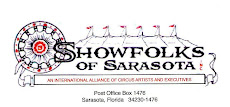
















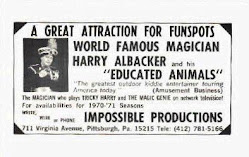

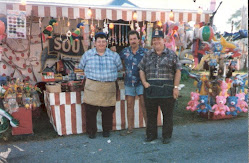





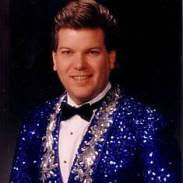




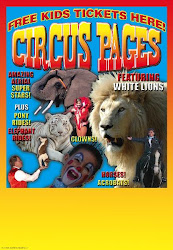

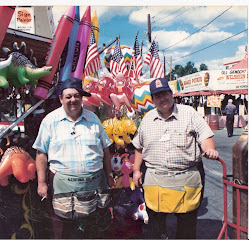
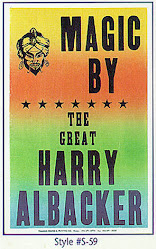















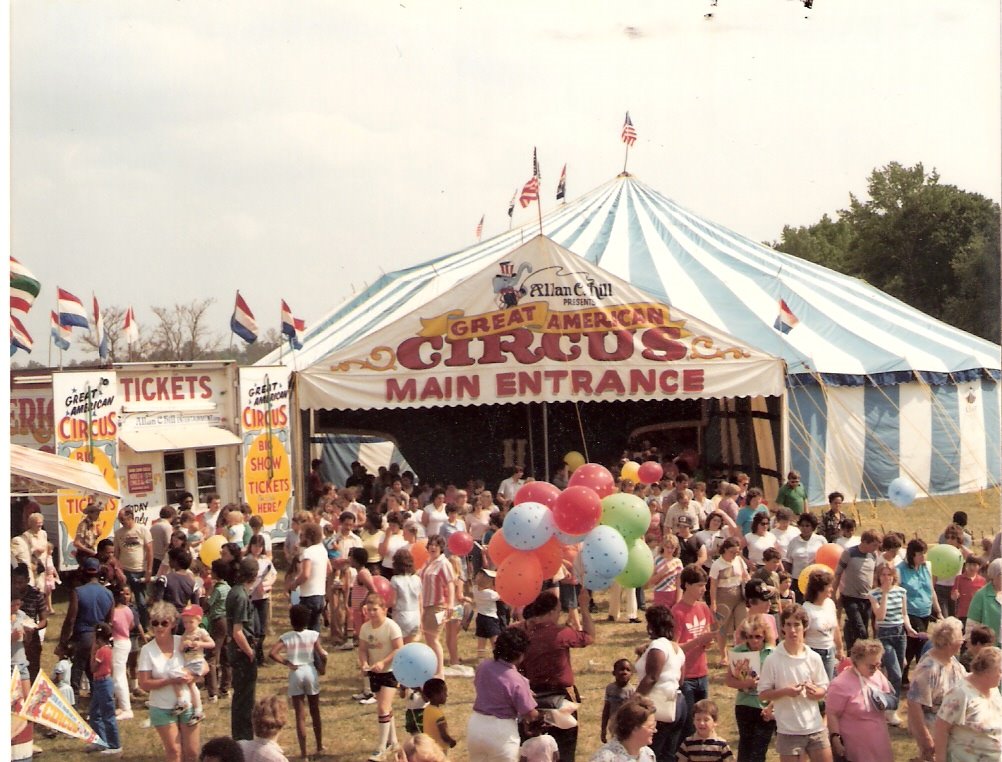









No comments:
Post a Comment